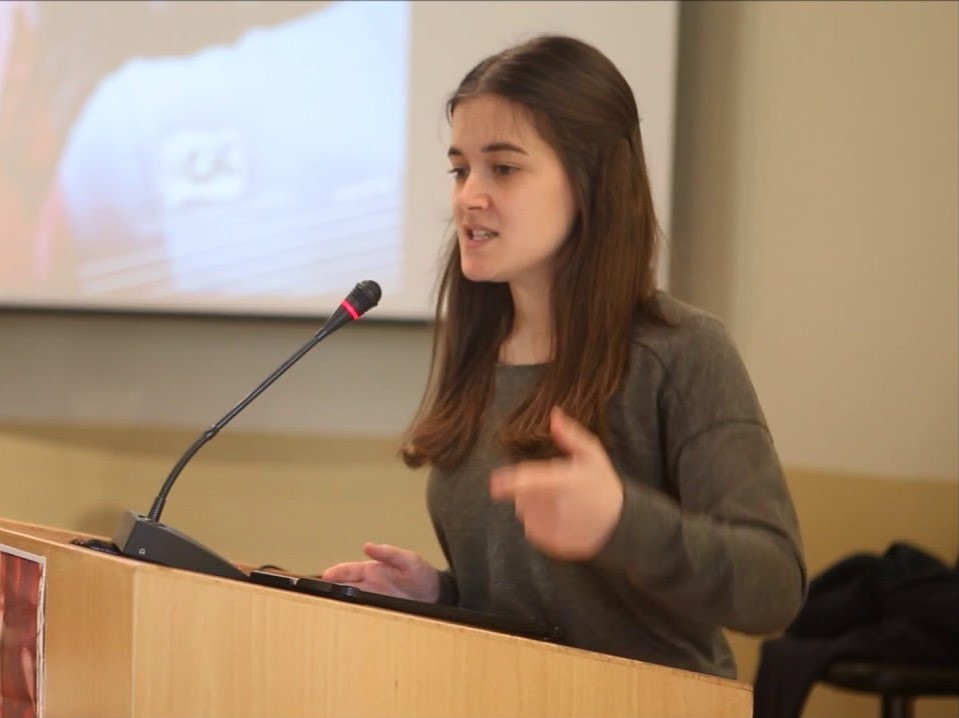
ICP interviewed Marina Gómez, candidate MEP of the PCTE.
ICP, 23 May 2019
Marina Gómez, candidate MEP of the Communist Party of the Workers of Spain (PCTE), answered our questions.
In your statement after the parliamentary elections last month, you have mentioned that the working class has cast their votes “out of fear”, they voted to political actors that do not represent their interests. What was the reason and how do you think this will influence the EP elections?
Last April 28 General Elections in Spain were held under a new political scene. The two-party system made to rule the country by taking turns in the electoral periods between the two big parties – PP and PSOE – has been modified after the emergence of other political forces that complement these big parties on the right and on the left, like the parties Ciudadanos or Podemos. The prominence of the far-right party “VOX” has been increasing in these last months, especially after obtaining representatives in the elections of the Andalusian region. This increasing influence has caused the calls for the “useful vote” around the PSOE and for the “anti-fascist front” around Podemos to occupy a large part of the electoral speeches of social-democracy.
Thus the working class gets placed against an unreal dilemma, against a non-correctly posed dilemma. Thanks to this a large quantity of votes have been dragged towards social-democracy. Towards the same social-democracy that legalized Temporary Work Agencies, that passed two labour counter-reforms, that made Spain join NATO, that supports coups d'état in other countries...
In this new electoral campaign, we are working hard to explain that such vote is useful, but it is useful just for capitalism. And that, on the other side, the only useful vote for workers is a vote which is consistent with their class interests.
You are saying that Euro was a great deception to Spanish people. How were the working and living conditions of the people in Spain affected in the past years? What was the impact on the workplace atmosphere, organisational cultures of workers?
Since January 2002, when the introduction of Euro was made in Spain, the rise of prices has been increasing. Euro has served to generate a substantial loss of economic sovereignty and the collapse of purchase power for workers. Since 2002, prices had a mean increase of 40%, while wages had a mean increase of 28%.
This has an evident effect in job posts, as it becomes increasingly more difficult to face the increasing costs of food, clothes and housing (by the way, one market where prices never stop growing) with our salary. Besides, the advance in the privatization of public services, the reduction of the amount for pensions, will further worsen these consequences.
You propose a “rupture”, a break-up with the EU. In which conditions should and can that rupture happen?
We understand the EU cannot be reformed, as the EU is not a democratic body created to favour the working class from all the countries that belong to it. Quite on the contrary, it is a body created by and for big monopolies, to favour the export of their products, to lower labour conditions and labour and trade union rights.
This is why we say there is no revolutionary stance that leads to an acceptance of the EU and does not firmly advocate for the break-up with this capitalist and imperialist structure. This break-up must be produced via an accumulation of forces in each country, and a strong common struggle among the Communist Parties that firmly hold this stance.
PCTE has entered the parliamentary elections last month with the new acronym. In a very short while your party has been able to collect thousands of signatures and received the eligibility for elections. Now immediately after that, you are proceeding with the EP and municipal elections. Could you tell us about the process? How are the reactions of people towards PCTE?
The electoral system in Spain is quite particular. Since a few years ago, political parties which do not have parliamentary representation shall get a percentage of signatures as endorsements to be able to present a candidacy to the general elections, which means an extra effort for parties like PCTE. Nevertheless we decided to go out to the streets with all our militant forces and got more than 30.000 signatures to support our candidacies. This support allowed us to be present in 29 electoral constituencies and become the first communist candidacy in the country.
We have to largely thank the commitment of all the Party and Youth members who worked with decision in those weeks, but also to all the workmates, union companions, neighbours and so on who decided to support the Communist Party, the Party which struggles with them everyday, the Party who they shared struggles, strikes, mobilizations, union elections and meetings with, and which has a strong commitment for the defence of the working-class' interests, whatever the costs are. One example of this is the commitment showed when drafting the electoral list of the PCTE for the elections of the Autonomous Community of Madrid, which countrs with a huge representation of work council members and trade-unionists from companies where we have intervened in the last years.